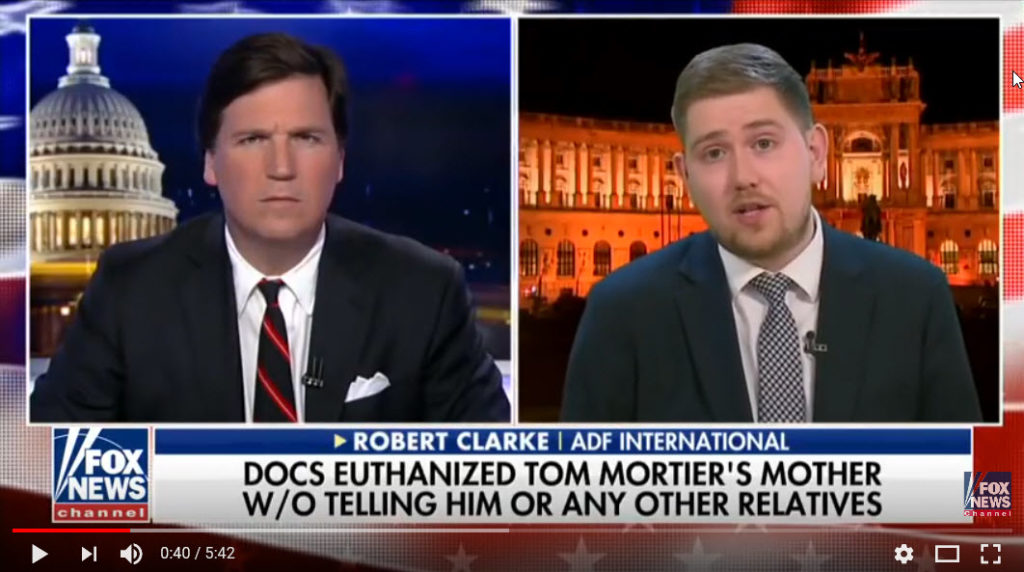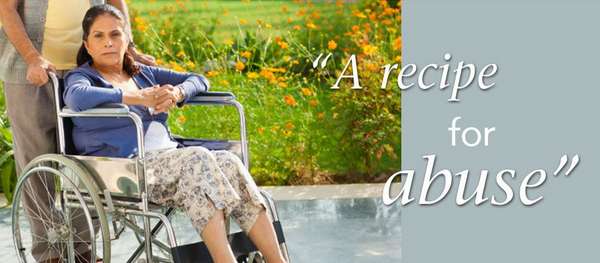
NewsTalk ZB 14 December 2017
Family First Comment: Christchurch woman Claire Freeman lost all movement in her limbs after a car accident when she was 17. She was told by health professionals that given the extent of her injuries, travelling overseas for assisted suicide was a legitimate option. “That would definitely have been something that I would have actively pursued had it been legal and I’m just so grateful now that it is not.”
www.PROTECT.org.nz to make a Submission
A tetraplegic says a voluntary euthanasia bill that has passed its first reading needs significant changes.
Christchurch woman Claire Freeman lost all movement in her limbs after a car accident when she was 17.
She told Larry Williams in the wake of her accident, she was told by health professionals that given the extent of her injuries, travelling overseas for assisted suicide was a legitimate option.
“That would definitely have been something that I would have actively pursued had it been legal and I’m just so grateful now that it is not.”
She said assisted suicide has a place in the event of a painful and terminal illness, but should not be allowed for those with grievous injuries like hers.
Claire said she attempted to end her own life after her accident and now regrets considering suicide.
“You don’t know what it’s like until you have it and my problem wasn’t my injury it was my misguided coping mechanism.”
http://www.newstalkzb.co.nz/on-air/larry-williams-drive/audio/claire-freeman-euthanasia-bill-needs-significant-changes/

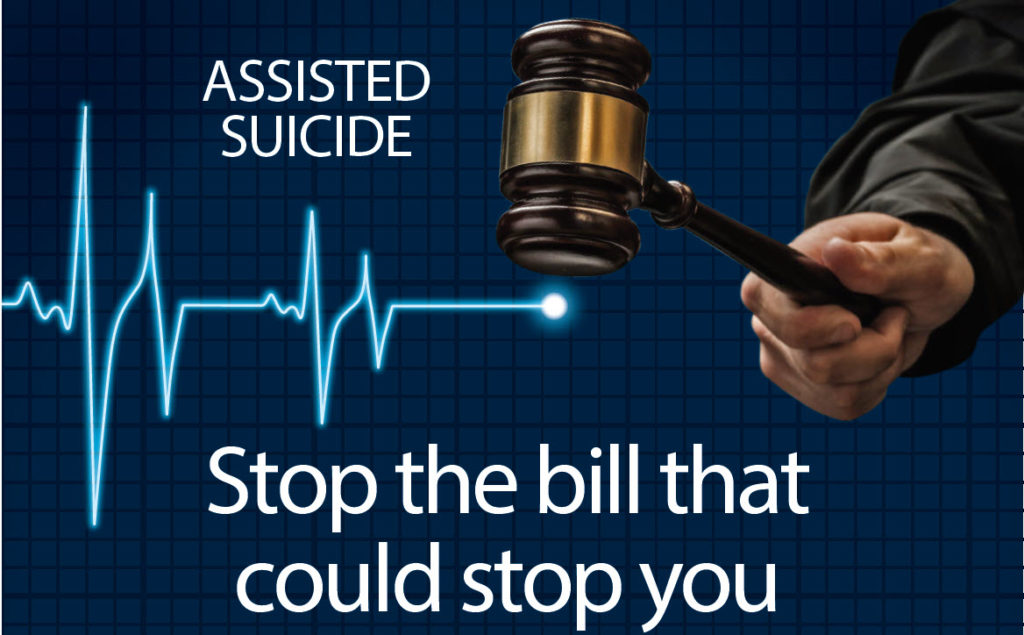
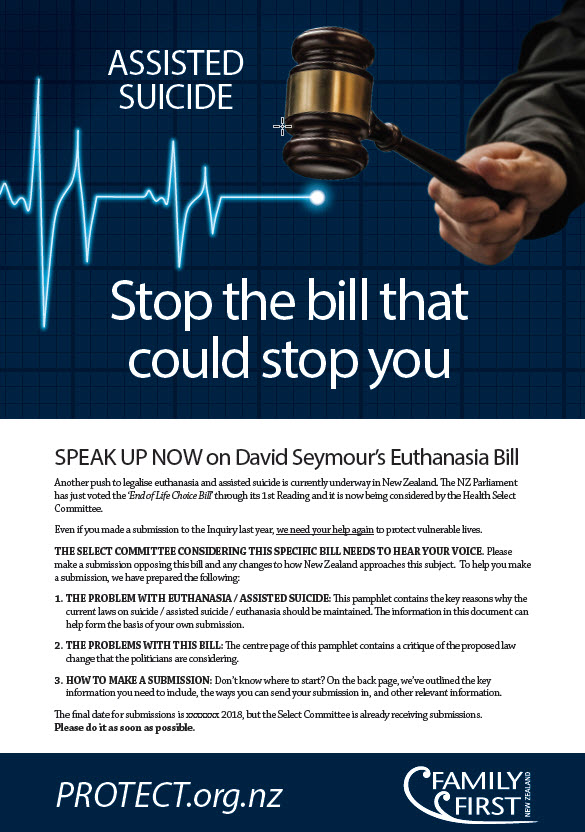 Yes – we know that Christmas is just around the corner – and probably the last thing you want to do is think about euthanasia / assisted suicide.
Yes – we know that Christmas is just around the corner – and probably the last thing you want to do is think about euthanasia / assisted suicide.
But the Select Committee considering David Seymour’s euthanasia bill (whose members interestingly ALL voted for euthanasia in the 1st Reading!) have set the deadline for submissions as soon as 20 February 2018. They seem to be hoping that you’ll be too distracted by the festive and holiday season to get around to making a submission against the bill. Let’s disappoint them!
So we’ve done all the ‘prep work’ for you. Our 16-page Submission Guideline resource contains:
1. the key reasons why the current laws on suicide / assisted suicide / euthanasia should be maintained. This will help you get started with ideas for your submission
2. a critique of the key part of the specific law change proposed by Seymour
3. the key information you need to include, the ways you can send your submission in, and other relevant details.
Q: I made a submission to the recent Inquiry. Do I need to make another submission to the Inquiry?
A: YES! This is a separate consideration which involves a potential law change
Q: So can I use similar material to what I did in my previous submission?
A: Absolutely, although we would encourage you to read our resource first to refresh your mind and to take into account the specifics of the proposed law change
Q. Just remind me – what’s the latest date I can make a submission?
A: You have until 20 February 2018 (but why not do it this weekend!) Then you can have a total break in January. The beginning of the year can always be a bit chaotic
Q. I’d like to make this info available to friends and family. Is there a printed pamphlet that I can distribute?
A: Glad you asked! Yes we are printing the Submission Guideline and distributing in January (or as soon as you get back from holiday). Use the link below to place orders for your group / church / organisation.
READ THE SUBMISSION GUIDELINES
ORDER COPIES OF THE PAMPHLET FOR YOUR GROUP / CHURCH
Email [email protected] with the following details.
Name:
Name of Group / Church / Organisation (to avoid double ups):
Delivery Address:
Contact phone number:
Quantity requested:
No cost – although any donation towards printing and postage gratefully received!

NZ Herald 15 December 2017
Family First Comment: “I am a palliative medicine physician with 28 years experience in caring for patients and their families at the end of life. I am affronted by the fact that a politician would imply he understood the finer details of medicine and medical treatment better than me or my colleagues. To Mr Seymour I say, how dare you accuse my profession and my colleagues of illegal practices. How dare you confuse quality and ethical care with the intentional ending of a person’s life. What makes you think you know better than the World Medical Association or the New Zealand Medical Association?… Politicians do great harm to the perception of medical practice, and instil unnecessary fear and anxiety in the minds of the public, by promulgating, on national television, incorrect, misleading and unsubstantiated statements.”
www.PROTECT.org.nz to make a submission
In support of his bill that seeks to change the law in New Zealand, David Seymour claims, “It is ok if a doctor intentionally ends your life by giving you too much morphine and claiming that’s a double effect. All that is ok. All that happens without any regulatory safeguards whatsoever.”
I am a palliative medicine physician with 28 years experience in caring for patients and their families at the end of life.
I am affronted by the fact that a politician would imply he understood the finer details of medicine and medical treatment better than me or my colleagues.
To Mr Seymour I say, how dare you accuse my profession and my colleagues of illegal practices.
How dare you confuse quality and ethical care with the intentional ending of a person’s life. What makes you think you know better than the World Medical Association or the New Zealand Medical Association?
It is unacceptable that such uninformed statements go unopposed. For too long we have retained our professional discipline and shown restraint by not reacting publicly to such loose and ill-informed pronouncements. It is unfortunate to even repeat what has been said, but I do so to explain my justified outrage.
We do not intentionally end the lives of our patients by giving too much morphine. We train under strict supervision according to national and international standards of excellence in the discipline and science of use of morphine and other drugs for symptom control.
Morphine is not used to euthanise people in Netherlands or Belgium, morphine is a very effective analgesic in patients suffering from moderate to severe pain and it is safe in the hands of medical prescribers who are trained as we are in its use.
There is no evidence that doctors are using morphine to kill patients in New Zealand.
There are extensive safeguards in the training and practice of medicine. The correct titration of all the drugs we use to relieve symptoms and minimise side-effects is at the heart of training in palliative medicine.
More and more these days such training occurs at undergraduate and postgraduate levels for all doctors, including GPs and hospital doctors.
Politicians do great harm to the perception of medical practice, and instil unnecessary fear and anxiety in the minds of the public, by promulgating, on national television, incorrect, misleading and unsubstantiated statements.
If Mr Seymour knows he is incorrect, then he is misleading the people. If he does not know that he is incorrect, then he is quite simply showing his abject lack of knowledge on this topic.
• Dr Sinead Donnelly trained as a specialist in general and palliative medicine in Ireland, Scotland and USA. She has worked in Wellington since 2008.
READ MORE: http://www.nzherald.co.nz/nz/news/article.cfm?c_id=1&objectid=11959454

 National
National
NO!
Kanwaljit Singh Bakshi, Maggie Barry, Andrew Bayly, David Bennett, Simon Bridges, Simeon Brown, Gerry Brownlee, David Carter, Judith Collins, Jacqui Dean, Sarah Dowie, Bill English, Chris Finlayson, Paul Goldsmith, Jo Hayes, Steven Joyce, Nuk Korako, Denise Lee, Melissa Lee, Tim Macindoe, Todd McClay, Ian McKelvie, Todd Muller, Alfred Ngaro, Simon O’Connor, Parmjeet Parmar, Chris Penk, Shane Reti, Alastair Scott, Nick Smith, Louise Upston, Nicky Wagner, Michael Woodhouse, Jonathan Young, Lawrence Yule (35)
YES
Amy Adams, Paula Bennett, Chris Bishop, Jonathan Coleman, Matt Doocey, Andrew Falloon, Nathan Guy, Harete Hipango, Brett Hudson, Nikki Kaye, Matt King, Barbara Kuriger, Mark Mitchell, Jami-Lee Ross, Scott Simpson, Stuart Smith, Erica Stanford, Anne Tolley, Tim van de Molen, Hamish Walker, Jian Yang (21)
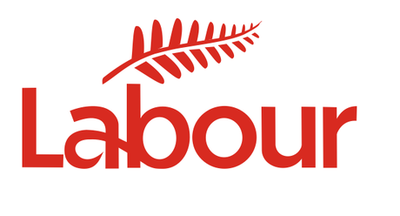 Labour
Labour
NO!
David Clark, Anahila Kanongata’a-Suisuiki, Damien O’Connor, Jenny Salesa, William Sio, Jamie Strange, Rino Tirikatene, Phil Twyford, Poto Williams (9)
YES
Kiri Allan, Ginny Andersen, Jacinda Ardern, Tamati Coffey, Liz Craig, Clare Curran, Kelvin Davis, Ruth Dyson, Paul Eagle, Kris Faafoi, Peeni Henare, Chris Hipkins, Raymond Huo, Willie Jackson, Iain Lees-Galloway, Andrew Little, Marja Lubeck, Jo Luxton, Nanaia Mahuta, Trevor Mallard, Kieran McAnulty, Stuart Nash, Greg O’Connor, David Parker, Willow-Jean Prime, Priyanca Radhakrishnan, Grant Robertson, Adrian Rurawhe, Deborah Russell, Carmel Sepuloni, Jan Tinetti, Louisa Wall, Angie Warren-Clark, Duncan Webb, Meka Whaitiri, Michael Wood, Megan Woods (37)
 NZ First
NZ First
YES (All MPs!)
Darroch Ball, Shane Jones, Jenny Marcroft, Ron Mark, Tracey Martin, Clayton Mitchell, Mark Patterson, Winston Peters, Fletcher Tabuteau
Greens
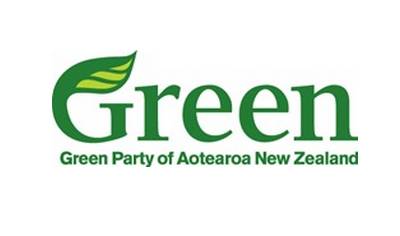 YES (All MPs!)
YES (All MPs!)
Marama Davidson, Julie Anne Genter, Golriz Ghahraman, Gareth Hughes, Jan Logie, Eugenie Sage, James Shaw, Chloe Swarbrick
ACT
David Seymour

NewsHub 13 December 2017
A Bill on legalising euthanasia has passed its first reading after gaining majority support in Parliament through a conscience vote.
Seventy-six MPs voted in favour and 44 voted against.
It will now pass to the justice select committee and be open to public submissions.
ACT MP David Seymour’s End of Life Choices Bill seeks to give people those suffering a terminal illness or a grievous or incurable medical condition the option to request medically assisted death.
New Zealand First has supported the bill under the provision that a nationwide referendum is held on the issue.
NZ First MP Tracey Martin said: “Not a single one of us is smarter than the people who placed us here, not a single one of us has more of a conscience or less of a conscience than the people who voted us here. This issue should go to them, this is too big an issue for this House to decide.”
National leader Bill English opposed the Bill, saying it’s not creating a medical procedure but “an exemption from the criminal law against killing for a certain group”.
“I don’t think anyone can in their heart of hearts believe that this bill will make life safer for the disabled, that it’ll make our community more warmly embracing of our aging population. Who pretends that?”
Green MP Julie Anne Genter supported the Bill, but wants to see it amended to ensure there was no risk of abuse particularly for those with disabilities and other vulnerable people.
READ MORE: http://www.newshub.co.nz/home/politics/2017/12/assisted-dying-bill-passes-first-reading-in-parliament.html
 Keep up with family issues in NZ.
Keep up with family issues in NZ.
Receive our weekly emails direct to your Inbox.
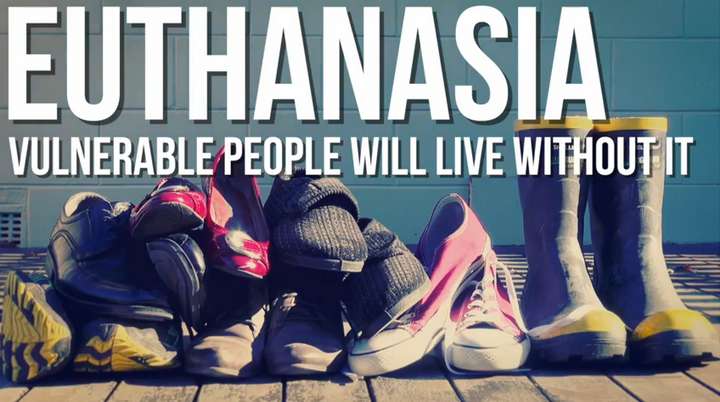
Media Release 13 December 2017
In response to ACT MP David Seymour’s euthanasia bill passing it’s 1st Reading tonight, Family First NZ is immediately launching a strong nationwide campaign to stop the flawed and dangerous bill.
Family First will be releasing a 16-page resource this week to help families and organisations flood the Select Committee with submissions opposing the law.
“Safe euthanasia is a myth. Euthanasia will remove the ‘choice’ of many vulnerable people, and fails the public safety test. Most disturbingly, promotion of assisted suicide is a message that will be heard not just by those with a terminal illness but also by anyone tempted to think he or she can no longer cope with their suffering – whatever the nature of that suffering. This is the real risk to young and to vulnerable people, the disabled and elderly people if NZ follows the path of promoting – and allowing – assisted suicide,” says Bob McCoskrie, National Director of Family First NZ.
The recent parliamentary inquiry sounded a clear warning that changing the law on assisted suicide could be seen as normalising suicide, and an overwhelming 80% of the 21,000+ submitters – in an extensive and lengthy inquiry – have rejected calls for euthanasia.
“Vulnerable New Zealanders will live without this Bill.”
www.rejectassistedsuicide.nz
ENDS
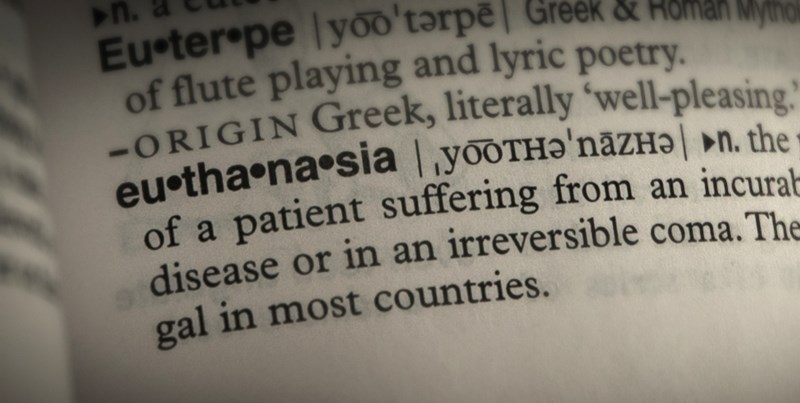
Media Release – EuthanasiaFree NZ 13 December 2017
Family First Comment: Widespread confusion about what euthanasia actually is…
“Dr Amanda Landers is a palliative care doctor in the South Island, caring for people with a range of life-limiting conditions. She also gives presentations to nurses, doctors and the general public. She says that many patients, and even some doctors, are unaware that stopping life-prolonging treatment and medication is legal and ethically acceptable. This means the person dies from their underlying illness – which is completely different from an intervention which deliberately ends their life prematurely.”
A new Curia Market Research poll shows New Zealanders are confused about what ‘assisted dying’ even means.
“This groundbreaking poll challenges the validity of most other polls on the issue. It shows that support for euphemisms such as ‘assisted dying’, ‘aid in dying’ or ‘assistance to end their life’ should not be taken as support for a law change,” says Renée Joubert, executive officer of Euthanasia-Free NZ.
The more strongly a person supports ‘assisted dying’, the more likely they are confused about what it includes.
Of those who strongly support ‘assisted dying’:
- 85% thought it includes turning off life support
- 79% thought it includes ‘do not resuscitate’ (no CPR) requests
- 67% thought it includes the stopping of medical tests, treatments and surgeries.
In all three cases a person would die from their underlying medical condition – of natural causes.
These ‘end-of-life choices’ are legal and people can make their wishes known via Advance Care Planning.
Dr Amanda Landers is a palliative care doctor in the South Island, caring for people with a range of life-limiting conditions. She also gives presentations to nurses, doctors and the general public.
She says that many patients, and even some doctors, are unaware that stopping life-prolonging treatment and medication is legal and ethically acceptable. This means the person dies from their underlying illness – which is completely different from an intervention which deliberately ends their life prematurely.
“I was caring for a man in his 60s who was on peritoneal dialysis. He thought he would be committing euthanasia/suicide by stopping it. This belief was weighing heavily on his mind as he thought it was morally wrong.
“Once I explained to him that stopping dialysis was acceptable and that it would allow a natural death from his underlying illness, he stopped it.
“His family was unaware of his fears of dying by suicide/euthanasia and that he wanted to stop the dialysis. It was a very emotional moment for them when they heard how he was feeling, but ultimately they supported him in his choice.”
ACT MP David Seymour’s End of Life Choice Bill proposes ‘assisted dying’ by administering drugs to end someone’s life, either by injection or ingestion through a tube (euthanasia) or by giving a lethal dose to a person to swallow or administer (assisted suicide).
There are subtle differences between suicide, assisted suicide and euthanasia: It’s suicide when a person ends their own life. It’s assisted suicide when a person receives help to access the means to end their life but then takes the final action themselves. It’s euthanasia when the final action is performed by another person.
Only 62% of the 894 respondents polled thought that ‘assisted dying’ includes receiving deadly drugs to swallow or self-administer (assisted suicide).
Only 68% of respondents thought that ‘assisted dying’ includes receiving deadly drugs by injection (euthanasia).
New Zealanders are significantly less supportive of the administration of lethal drugs to end someone’s life than the notion of ‘assisted dying’ as a whole.
After hearing which practices the proposed Bill would be limited to, support for ‘assisted dying’ dropped from 62% to 55%, opposition rose from 22% to 26% and unsure/refuse responses rose from 6% to 11%.
“We would expect public support to drop even further when people consider the wider implications and unintended consequences of euthanasia and assisted suicide legislation,” says Ms Joubert.
“A case in point is a 2014 UK ComRes poll which showed that public support for the Falconer Assisted Dying Bill dropped as low as 43% when people heard various arguments against changing the law or were provided with certain facts – for example the fact that six out of ten people requesting a lethal prescription in Washington State said a reason for doing so was their concern about being a burden on friends, family or caregivers.”
ENDS
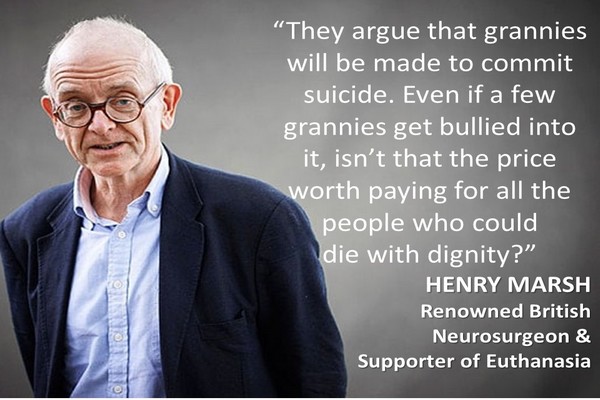
Otago Daily Times 12 December 2017
Family First Comment: “Seymour’s event at Parliament was disrupted by Dr Russell Franklin, a former paediatrician and GP, who is opposed to the move. Franklin confronted Dr Havill as MPs spoke to gathered media, saying it was “going back to the era of Nazi Germany” and went against the ethics of the medical profession.”
The first vote in Parliament on a bill to legalise voluntary euthanasia is near but National MP Maggie Barry’s description of it as a “licence to kill’ and a disruption at Act leader David Seymour’s campaign launch in support of the bill showed how heated the issue will be.
Seymour, whose bill was drawn from the ballot last term, launched the campaign at Parliament today alongside MPs from other parties, End of Life Choice’s Dr Jack Havill and Matt Vickers, the husband of the late Lecretia Seales.
Seales unsuccessfully took the issue to the High Court after she was diagnosed with a non-operable brain tumour and died in 2015 soon after the High Court ruled it could not grant her wish and said it was up to Parliament to change the law.
The first reading of the End of Life Choice Bill could be held tomorrow night or early next year, and MPs will have a conscience vote on it.
Family First has said it will campaign strongly against the bill.
Seymour’s event at Parliament was disrupted by Dr Russell Franklin, a former paediatrician and GP, who is opposed to the move.
Franklin confronted Dr Havill as MPs spoke to gathered media, saying it was “going back to the era of Nazi Germany” and went against the ethics of the medical profession.
READ MORE: https://www.odt.co.nz/news/national/heated-words-euthanasia-vote-nears


MPs need to hear from you today! The politicians are voting on the 1st Reading of ACT MP David Seymour’s euthanasia / assisted suicide bill tonight. No other euthanasia bill in the past has ever succeeded at the 1st Reading – and for good reason. Don’t let this one!
Please contact your local MP and all other MPs today.
CONTACT DETAILS FOR MPs – www.HaveYourSay.nz
SUBJECT LINE: Vote NO on David Seymour’s Euthanasia Bill
MESSAGE (points you could cover):
* Parliament has already considered this issue with the recent Inquiry – 21,000+ submissions – 80% opposition
* ‘Safe’ euthanasia is an illusion
* Euthanasia will remove the ‘choice’ of many vulnerable people
* Safeguards, while sounding good, would not guarantee the protection required for vulnerable people
* Promotion of assisted suicide is a message that will be heard not just by those with a terminal illness but also by anyone tempted to think he or she can no longer cope with their suffering – whatever the nature of that suffering
* Safeguards can only go so far. Coercion is subtle
* Opposition comes from disability sector, senior citizens, human right advocates, health sector, advocates for economically disadvantaged
* focus on what New Zealanders really need and want – a focus on providing the very best palliative care and support for vulnerable people, whether they are at the end of their life, or momentarily wishing they were at the end of their life
* We are voters in your electorate, and this issue is a key one for our support (if applicable)
Thank you for speaking up!
![]()
Bob McCoskrie
National Director
